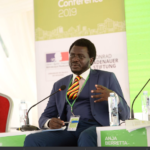More than half of all people live in cities. By 2050, two-thirds of humanity – 6.5 billion people – will live in urban spaces. Sustainable development cannot be achieved without significantly transforming the way we build and manage our urban spaces. SDG 11 of the Agenda 2030 therefore talks about making cities inclusive, safe, resilient and sustainable. Only a decade ago, the promise of optimising urban spheres through the extensive use of ICT was still a technoutopian fantasy. Since then, the terms smart city and smart urbanism have become major branding tools for global cities – without actually being clearly defined. The core idea is simple: smart cities are based on the idea that technology stands as the primary driver for change which will introduce innovative solutions to challenges of urban growth. So how exactly will smart cities transform our daily lives? How will urban places look like in the future? What are the challenges for cities to transition into the age of smart urbanism? And how about the aspect of inclusiveness? Will smart cities foster a better life for all inhabitants?
Kampala Geopolitics Conference





